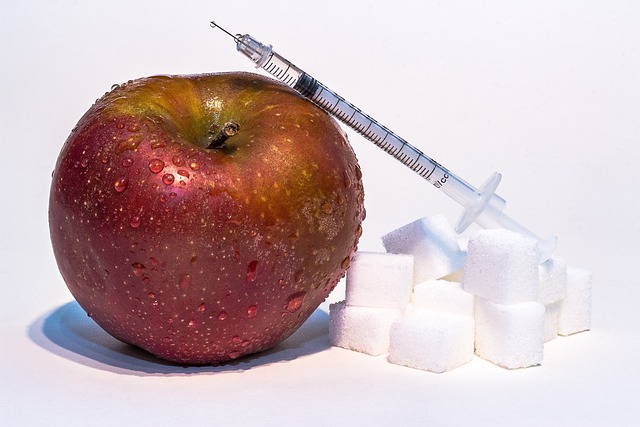Herbal supplements have been used for centuries across various cultures to promote health and well-being. Derived from plants, these natural remedies are gaining popularity as people seek alternative or complementary approaches to conventional medicine. While herbal supplements are not a substitute for professional medical care, they can offer numerous benefits when used thoughtfully and responsibly. In this article, we’ll explore the advantages of herbal supplements, their common uses, and important considerations for incorporating them into your daily routine.
What Are Herbal Supplements?
Herbal supplements are products made from plants or plant parts—such as leaves, roots, seeds, flowers, or bark—that are intended to support health. They come in various forms, including capsules, tablets, powders, teas, tinctures, and extracts. Unlike pharmaceutical drugs, herbal supplements are typically considered dietary supplements and are regulated differently by health authorities like the FDA.
Popular examples of herbal supplements include:
- Turmeric : Known for its anti-inflammatory properties.
- Echinacea : Often used to boost immunity.
- Ginger : Helps with digestion and nausea.
- Ashwagandha : Supports stress management and energy levels.
- Milk Thistle : Promotes liver health.
Benefits of Herbal Supplements
1. Supporting Immune Function
Many herbal supplements are rich in antioxidants, vitamins, and compounds that strengthen the immune system. For example:
- Elderberry : Contains flavonoids that may reduce the severity and duration of colds and flu.
- Astragalus : Traditionally used in Chinese medicine to enhance immune resilience.
These supplements can be particularly helpful during cold and flu season or when you’re feeling run down.
2. Reducing Inflammation
Chronic inflammation is linked to numerous health issues, including heart disease, diabetes, and arthritis. Anti-inflammatory herbs like turmeric (curcumin), ginger, and boswellia can help combat inflammation naturally.
3. Promoting Digestive Health
Herbs like peppermint, fennel, and slippery elm are widely used to soothe digestive discomfort, ease bloating, and improve gut health. Probiotic-rich herbal supplements, such as those containing fermented foods, also support a healthy microbiome.
4. Enhancing Mental Clarity and Mood
Adaptogenic herbs, such as ashwagandha, rhodiola, and ginseng, help the body adapt to stress while promoting mental clarity and emotional balance. These herbs are often used to combat fatigue, anxiety, and burnout.
5. Improving Sleep Quality
Certain herbs have calming effects that make them ideal for improving sleep. Valerian root, chamomile, and passionflower are commonly used to relax the nervous system and encourage restful sleep.
6. Boosting Energy Levels
Herbs like ginseng, maca, and schisandra are known for their ability to increase stamina and energy without the jitters associated with caffeine. They provide a natural way to combat fatigue and enhance vitality.
7. Supporting Hormonal Balance
For individuals dealing with hormonal imbalances, certain herbs can offer relief. For instance:
- Black Cohosh : Often used to alleviate menopausal symptoms like hot flashes.
- Vitex (Chasteberry) : Supports reproductive health and regulates menstrual cycles.
8. Protecting Liver Health
The liver plays a vital role in detoxification, and herbs like milk thistle and dandelion root are believed to protect and regenerate liver cells, supporting overall detox processes.
Common Uses of Herbal Supplements
Herbal supplements can address a wide range of everyday health concerns. Below are some examples:
| Health Concern | Recommended Herbs |
|---|---|
| Stress and Anxiety | Ashwagandha, Rhodiola, Chamomile |
| Poor Sleep | Valerian Root, Lavender, Passionflower |
| Digestive Issues | Ginger, Peppermint, Fennel |
| Immune Support | Echinacea, Elderberry, Astragalus |
| Joint Pain and Inflammation | Turmeric, Boswellia, Willow Bark |
| Fatigue and Low Energy | Ginseng, Maca, Schisandra |
Important Considerations When Using Herbal Supplements
While herbal supplements offer many potential benefits, it’s essential to use them wisely. Here are key factors to keep in mind:
1. Consult a Healthcare Professional
Before starting any new supplement, consult your doctor—especially if you’re pregnant, nursing, taking medications, or managing a chronic condition. Some herbs can interact with prescription drugs or exacerbate existing health issues.
2. Choose High-Quality Products
Not all supplements are created equal. Look for reputable brands that adhere to third-party testing standards to ensure purity, potency, and safety.
3. Follow Recommended Dosages
More isn’t always better. Stick to the recommended dosage on the label unless advised otherwise by a healthcare provider.
4. Be Patient
Unlike pharmaceuticals, which often produce immediate effects, herbal supplements tend to work gradually. Allow time for your body to respond before expecting significant results.
5. Avoid Self-Diagnosis
Don’t rely solely on supplements to treat serious health conditions. Use them as part of a holistic approach that includes proper nutrition, exercise, and medical care.
Potential Risks and Side Effects
Although herbal supplements are natural, they aren’t free of risks. Possible side effects include:
- Allergic reactions
- Gastrointestinal upset (e.g., nausea, diarrhea)
- Drug interactions (e.g., St. John’s Wort interferes with antidepressants)
- Overuse leading to toxicity (e.g., excessive intake of vitamin K-rich herbs)
Always research the specific herb you’re considering and monitor how your body responds.
Integrating Herbal Supplements Into Your Routine
To maximize the benefits of herbal supplements, incorporate them into a balanced lifestyle. Here are some tips:
- Pair supplements with nutrient-dense meals to enhance absorption.
- Combine herbs with mindfulness practices like yoga or meditation for amplified stress relief.
- Use teas or tinctures as part of a calming bedtime ritual for better sleep.
- Rotate herbs periodically to prevent overuse or dependency.
